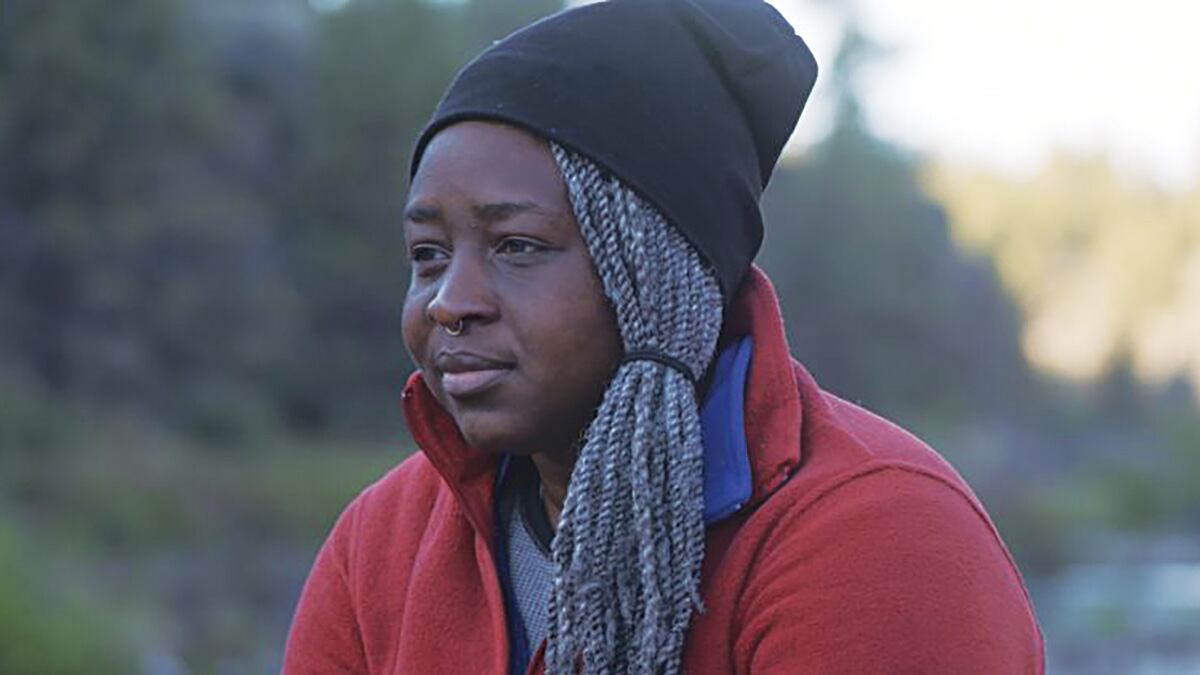Mercy Shammah regularly took neighborhood walks with her family as a way to close out the day and connect with nature. Through that routine, she developed a calming, peaceful relationship with the environment that was important for her to maintain after moving to Portland. With the city's proximity to the mountains and the ocean as well as its abundant parks—including one of the country's largest urban forest reserves—that might sound like an easy objective.
While technically open to all, the outdoors aren't as inclusive or diverse as you might assume. In meetups with other recreationalists, Shammah—a queer African American woman—found she was often the only person who was not white or straight. Even when she hit the trail by herself, she still felt like an outsider.
"It was a bit challenging, and that changes my desire to go out sometimes," Shammah says, "or it takes a little extra courage or push to get out there, knowing what it could be like."
That's in part what drove Shammah to found the nonprofit Wild Diversity, and take part in the new documentary Our Trails Too—which screens at NW Film Center this week. It follows her work to connect with underrepresented communities and help transform what the average outdoor adventurer looks like in Oregon. The organization recognizes that access to open nature comes with barriers, whether it's a lack of other people who know your lived experience and make you feel safe; prohibitively expensive hiking, biking and camping gear and training opportunities; or outright hostility from strangers in isolated places. During its 30-minute run, the film shows how Shammah built Wild Diversity and some of the alliances she's gained in the process.
"Going out with people who kind of have shared experiences, who can understand the dangers that maybe are not seen or experienced by the rest of the population, and having people who can support you through that, makes the outdoors more vivid," Shammah says. "You can experience it in a way that's more freeing, where you don't feel so uptight and scared and worried, where you feel like you have support, so I think it enhances the outdoors when you're with a supportive community."
Along with an equipment library, Wild Diversity gives historically marginalized people a space to bond with workshops and day or weekend trips that include activities ranging from rock climbing to backpacking. The idea to document the nonprofit's impacts came about rather organically after director Liz Haan and director of photography Emilia Quinton met Shammah at Queer Adventure Storytelling, a meetup for LGBTQ+ outdoors and travel enthusiasts. The two instantly related to her story.
"Our goal was to show the emotional impact this organization was having on the people that it touched and less so promote one specific organization," Haan says. "We also worked with several other really fantastic organizations who were open to us, who let us film them and gave us access to spaces. But within that lens was this overall goal not to act so much as a promotion for a variety of organizations but really look at the people in them."
"Obviously, when you've never done a documentary before, you don't know what you're signing up for," Shammah says, "but it's been a really fun and rad process."
SEE IT: Our Trails Too screens with a post-film reception at NW Film Center's Whitsell Auditorium, 1219 SW Park Ave., nwfilm.org, on Wednesday, May 29. 7:30 pm. Free.
